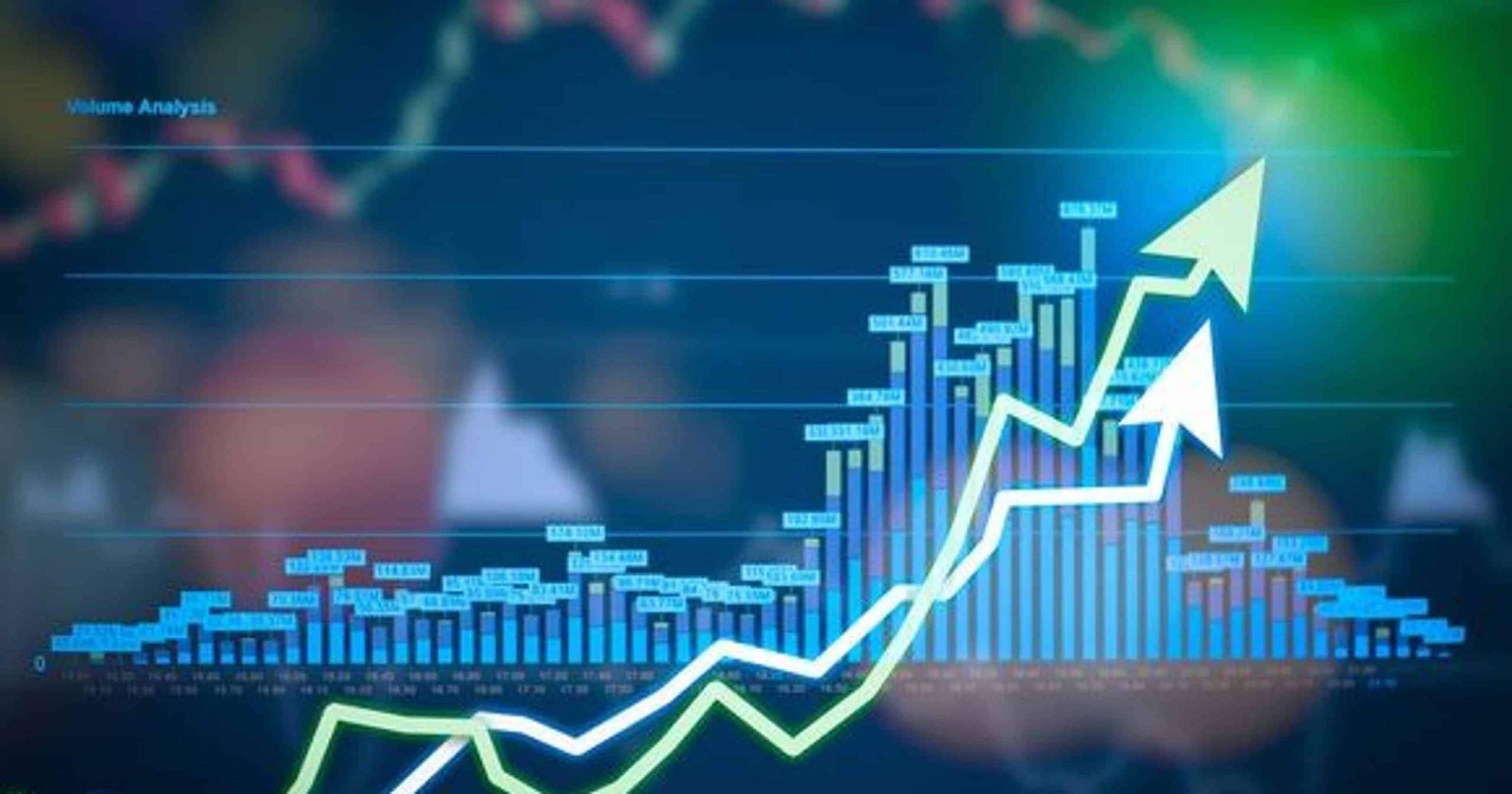What are stocks and how do they work?
Do you want to know what stocks are and how they work? Then you’re in the right place on this page!
What is a stock?
A stock is a proof of ownership in another company. When you buy a share, you become a co-owner of the company. A company often issues stocks to raise more capital. When a company issues stocks, this is also called a stock offering. You can trade stocks on the stock market through a broker.
How stocks work
Companies issue stocks to raise capital. In exchange for the stocks, the shareholder receives a claim on a portion of a company’s earnings.
When you buy stocks, you are not directly the owner of the company. Public limited companies are a legal entity. This means that thelegal entity is the owner of, for example, the brand name and office chairs.
This separation is favorable: as a shareholder, you are not liable for the company’s debts.
When a company issues 1,000 shares and you buy 100 shares, you own 10% of the stocks. This does not mean that you own 10% of the company, due to the separation of ownership and control.
As a shareholder, you have various rights:
- Voting rights: you can vote on important decisions at the shareholders’ meeting.
- Profit: you are entitled to a portion of the profits when dividends are paid out.
- Sell: you can sell your shares on the stock market at the prevailing price.
How can you make a profit with stocks?
Method 1: Capital gain
Stocks are tradable on the stock market. A price is established through the interplay of supply and demand. When you buy a stock and its value increases, you can sell it for more money.
Method 2: Dividend
Dividend is a profit distribution. The company itself can determine how much of the profit is paid out as a dividend. Some companies never pay out dividends, while there are also companies that pay out several percent of dividends on an annual basis. Click here to read more about dividends.
How to trade stocks yourself?
Option 1: Buy stocks for the long term
A first option is trading stocks in the long term. You buy stocks because you believe they will be worth more money in the future. When people buy stocks, they often do so with a long time horizon.
Do you want to know how and where to buy stocks? In our article about buying shares, you can read everything you need to know:
Option 2: Active trading in stocks
Other investors choose to actively speculate on the prices of shares. Stock prices can rise or fall several percentage points in a day.
The basic strategy for trading stocks is clear: when you expect the price to rise, you buy the stock, and when you expect a decline, you sell the stock. With a short position, it is also possible to speculate on declining prices.
Do you want to try speculating in stocks entirely risk-free with a free demo? Use the button below to immediately open a free demo for trading stocks:
Option 3: Investing in stocks with an ETF
Not everyone has the time to analyze stocks extensively. For most investors, stock ETFs are a solution. An ETF or exchange-traded fund makes it possible to invest in a basket of stocks all at once. This allows you to apply a high degree of diversification with a small amount of money. Click here to read more about ETFs.
What influences the price of a stock?
The price of a stock is determined by the number of buyers and sellers. When more people want to buy a stock, the price goes up. When people sell the stock en masse, the price drops.
The expectations about a company’s future prospects can strongly influence the price of a stock. I will explain this with two examples:
Example 1
When news comes out that a company has discovered a new medicine, the price is likely to rise.
Example 2
When news comes out that the retail market collapses due to the advent of online shopping, the stock prices of retail stores may fall.
Learn more?
Do you want to learn how to invest in stocks? It is important to conduct good analyses. In our articles on fundamental and technical analysis, you will learn how to do this:
- Fundamental analysis: use figures to make predictions
- Technical analysis: make predictions with patterns
What are the risks of trading in stocks?
Risk of a lower price
One risk of stocks is the so-called price risk: there is a chance that the stock you buy today will be worth less tomorrow. In that case, you will incur a loss when you sell the stock again.
In some cases, the entire market may perform poorly. This is also called the market risk.
Risk of bankruptcy
In addition to this risk, there is also a chance that the company will go bankrupt, and when a company goes bankrupt, you often receive only a fraction of the value of the stock back.
Lack of liquidity
When you buy a share with low trading volume, there is a chance that no one is interested in buying your shares. This can make it difficult to sell your shares because there is no market for them.>.

- Ordinary shares: these are the freely tradable shares on the stock exchange
- Preferred shares: these shareholders often have no voting rights, but receive dividends earlier and have priority in case of bankruptcy. Read more here.
Do stocks suit you?
Before you start investing in stocks, it’s important to determine whether investing in shares is really right for you. Trading in stocks is attractive if you want to benefit from the positive results of companies. However, don’t forget that you can lose (part of) your investment.
You can invest in stocks from as little as $ 100. If you want to build a serious portfolio, it’s recommended to do this with at least $ 5000. When investing with smaller amounts, it’s difficult to spread your risks. Moreover, you then have to deal with relatively high transaction costs.

What are the pros and cons of stocks?
Investing in stocks has its pros and cons. One major advantage of stocks is their often high return. Over the past 100 years, stocks have performed much better than other investment products.
However, there are also significant disadvantages to stocks. Investing in stocks is risky: you never know if you will achieve a positive result in the short term. You will also have to invest the necessary time to decide which stocks you want to invest in.
Finally, investing in stocks can be expensive for investors with a small budget. The costs are relatively high in this case.
Conclusion: Is investing in stocks smart?
After the explanation about stocks, you have a better understanding of what stocks are. But why is it wise to own stocks? On average, stocks yield about 7 to 8 percent annually. Since 1900, this has amounted to about 5 percent after inflation.
When you park your money in a savings account, you currently receive a negative real return on it. This is because inflation is higher than the interest you receive on your savings account.
5 percent may not seem very exciting, but through the power of compound interest, your stocks can quickly increase in value. When you reinvest your returns, you also receive returns on your returns. If you invest $1,000 annually for 30 years at 7%, you will have $101,073 at the end. So even with small amounts, it can definitely be worth to invest. You can use this tool to see how your wealth can grow with stocks.
Frequently Asked Questions About Stocks
You can buy both stocks and mutual fund shares at a broker. It is important to understand the differences between these two investment products. When you buy a stock, you do so on your own initiative; you choose which company you want to invest in. When you buy a share in a mutual fund, it works differently.
A fund decides for you in which stocks you will invest. You deposit a certain amount and automatically invest in a basket of stocks. You have less control over the composition of your investments. However, you can choose from funds with different flavors: an Asia fund will not invest your money in Europe.
Stocks originated in the Netherlands. The VOC, which was founded in 1602, was looking for new assets with which they could carry out various distant journeys. They needed a lot of capital for this, and to obtain it, they decided to issue shares. These stocks did not give the holder the right to a dividend, but to goods acquired on the journey. Read more about the history of stocks here.
With a stock, you become a co-owner of the company and indirectly share in the results. When you buy a bond, you do not become an owner of the company.
A bond is a debt security. With a bond, you have the right to monthly interest payments. If the company goes bankrupt unexpectedly, you have priority over the shareholders. However, you never have the right to more than the interest payments. Read more about bonds here.
Issuing stocks can be an attractive method for companies to raise more money. The money obtained by issuing shares is permanent capital. This means the company does not have to pay interest on it.
The money raised by a stock issuance is often used to further expand the company. Without the capital raised by the issuance, the company would be less likely to expand.
Stocks do not have a fixed term which means your stocks will not just expire and are theoretically valid permanently. Only when the company goes bankrupt can you lose your stocks.
Shares are suitable for people who are willing to take risks. It is advisable to only invest in stocks with money that you can miss in the coming period. On the long term,you can achieve positieve results with stocks, but this is not certain on the short term.
Not all stocks are necessarily in someone’s name. The large companies traded on the stock exchange are not in someone’s name. You can trade the stocks freely with a broker, and there is usually no clear register where you can see who owns which shares.
When you open a private limited company (BV) with some family members, the stocks are often in someone’s name. You then know exactly who all the shareholders are.
A company may decide for itself how many stocks it issues and at what price. It is therefore advisable to compare companies based on market capitalization. The market capitalization indicates the total value of all outstanding shares.
Preferred stocks give shareholders some preferred rights. For example, they receive a fixed dividend for the other shareholders. Do you want to know more about preferred stocks? Then read this article.
ETF stocks are stocks that are traded within a fund. You can directly follow a basket of funds with an ETF. ETF stands for exchange traded fund.
When you trade in CFDs, you do not invest directly in the stock itself. However, CFDs do follow the price of the stock. Do you want to know more about CFDs? Then read this article.
Cyclical stocks are shares that move with the economy. When the economy performs well, prices rise and when the economy performs poorly, prices fall. Do you want to know more about cyclical stocks? Then read this article
You can also indirectly invest in the value of a share with a share certificate. A share certificate is a document that follows the exact value and earnings of a share. The product is comparable to an investment fund, but specifically focused on one share.
Bearer shares are shares on which the owner is not listed. The vast majority of shares traded are bearer shares.
Normally, when buying and selling shares, you pay a so-called spread. This is the difference between the purchase and sale price. In addition, many brokers also charge a fixed commission. In our article on the costs of investing, you can see exactly how much investing in shares costs.
Registered shares are the counterpart of bearer shares. Registered shares cannot be sold to anyone else. They are specifically assigned to you and give you a part of the ownership of the company. This type of share is often found in family businesses.
Companies may decide to buy back a portion of their own shares. This can happen when the stock price has fallen sharply. Buying back its own shares can stimulate the share price. The repurchased shares are also known as treasury shares and can be resold on the stock market at any time.
A golden share is a share with a special veto right. In some cases the government demands a golden share to prevent a takeover or the reduction of services.
A large cap share is a share with a high market value. Large cap stands for large market capitalization. Companies with a value of more than $10 billion or are often referred to as large cap shares.
There is a simple answer to this question: the best shares are those that perform the best. However, this is a simplistic answer. The best-performing share today may no longer exist tomorrow due to bankruptcy. In addition, not all stocks fit everyone’s investment strategy. It is therefore important to conduct your own research.
A blue chip share is a highly regarded share. Blue chip shares have a reputation for high quality and reliability. People have a lot of confidence in the future of this company.
Class A shares have more votes per share. This allows the management to remain in control of the company. If all shares had equal voting rights, an external party could take control more easily. Class B shares have less voting rights.
When you take a short position, you speculate on a price decrease. When people refer to a short stock, they often mean a short position on the stock.
The nominal value of a stock is the price at which it was originally brought to the market. The nominal value is not important when you invest in a stock, as the price of a stock is constantly fluctuating. A stock will not be traded at its nominal value for long.
The intrinsic value of a stock can be calculated by subtracting the company’s debts from its assets, and then dividing the remaining amount by the number of shares. However, this number on its own provides little information, which makes it important to also research the company’s future expectations.
Defensive stocks are less sensitive to the overall state of the economy. By including defensive stocks in your portfolio, your returns will be less likely to decrease when the economy falters. An example of a defensive stock is a supermarket stock.
Auteur

Over Alex Mostert
When I was 16, I secretly bought my first stock. Since that ‘proud moment’ I have been managing trading.info for over 10 years. It is my goal to educate people about financial freedom. After my studies business administration and psychology, I decided to put all my time in developing this website. Since I love to travel, I work from all over the world. Click here to read more about trading.info! Don’t hesitate to leave a comment under this article.
